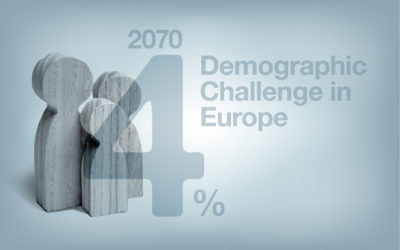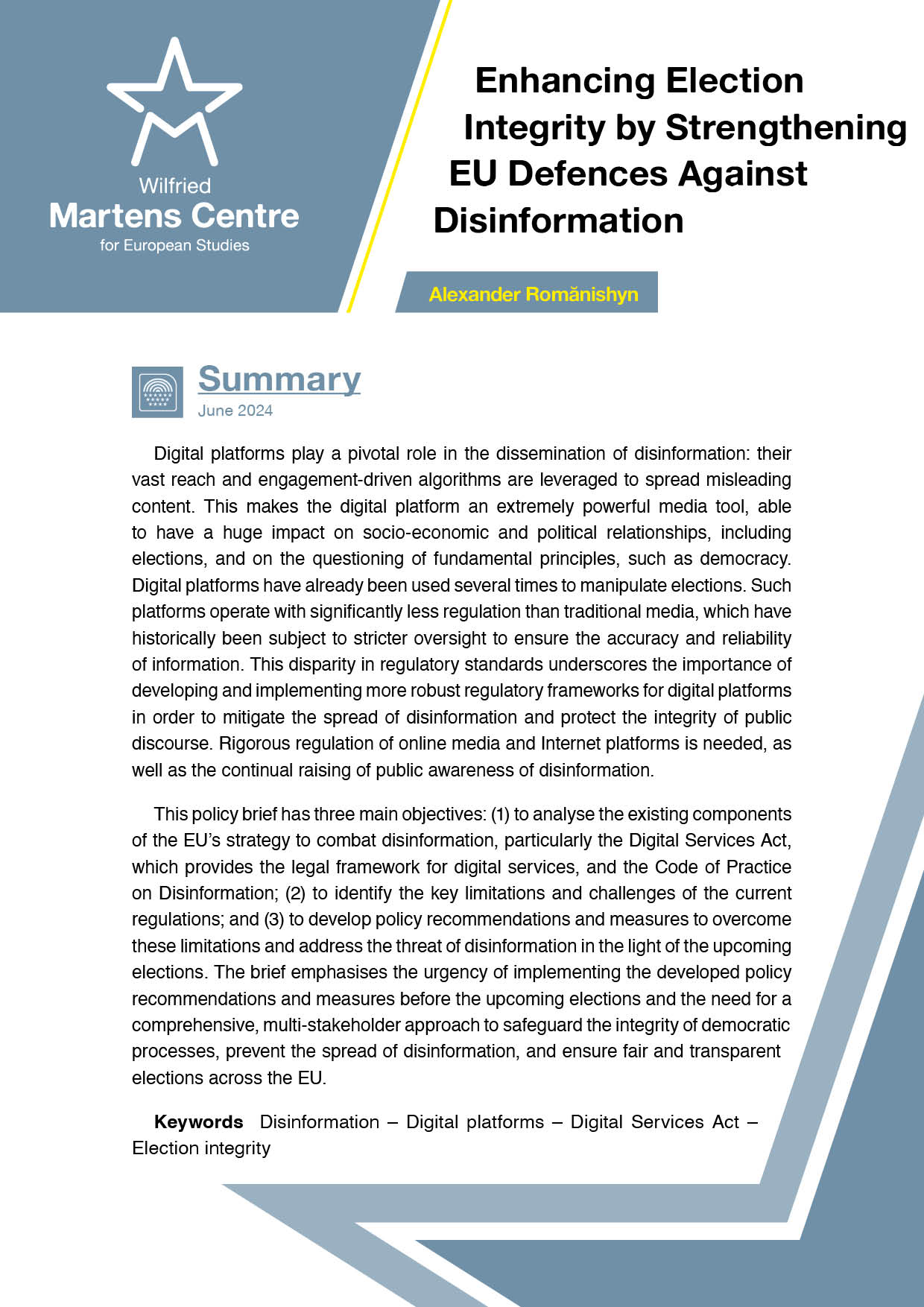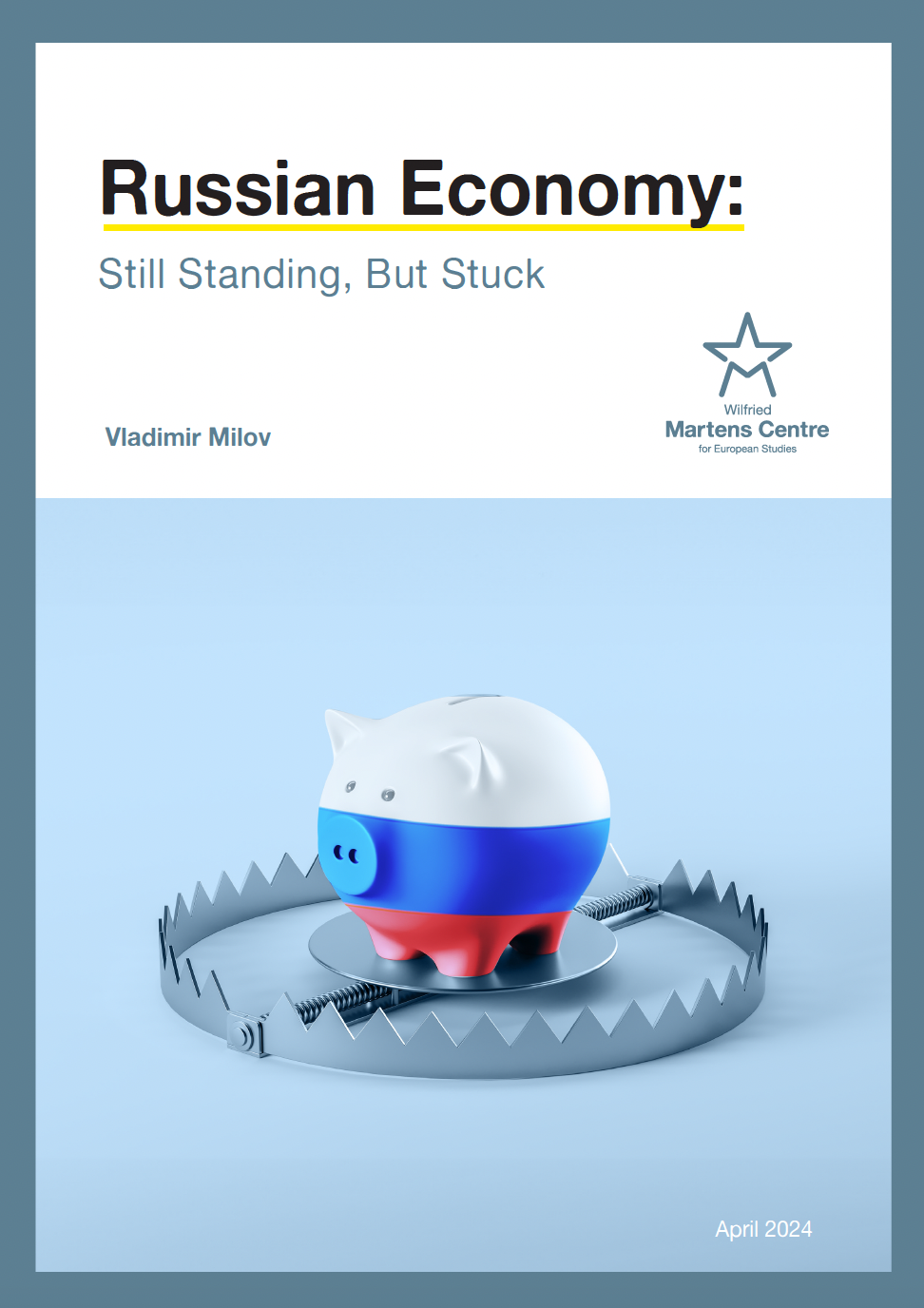20 Years of Neglect and Regret: Why Competitiveness Will Haunt Europe in the 2024 Elections
13 December 2023

In the year 2000, the European Union (EU) stood as the largest economic entity on the planet. At the European Council summit in March of that year, its leaders set the objective of the EU becoming “the most competitive and dynamic knowledge-based economy in the world, capable of sustainable economic growth with more and better jobs and greater social cohesion”.
Alas, little more than two decades later, Europe is paralysed by a fear of falling further behind the United States and China. From chips to semiconductors; from wind turbines to electric cars – the EU is gripped by a foreboding sense of managed decline.
But it wasn’t always like this.
At the turn of the millennium, the EU’s Lisbon Agenda sought inspiration from a robust US economy, and envisioned the EU surpassing it in economic growth. The strategy revolved around further integration, emphasising the single market and digitalisation to fuel growth.
Unfortunately, for over twenty years, the EU has neglected this competitiveness-centred approach. And this neglect will haunt Europe in the 2024 elections.
Because, on the other side of the Atlantic, the United States surged ahead, embracing a market-based economy with a unified internal and capital market. Productive US knowledge-intensive companies expanded globally, while Europe’s share of world GDP dwindled, and its innovation support proved more expensive and less effective.
And while Europe stagnated, China built an entire high speed rail network and assumed leadership in many emerging technologies.
The regrets in Europe are already profound.
The truth is that the EU’s commitment to competitiveness never recovered from the global economic and financial crisis which started in 2007. While the United States managed a relatively swift recovery, the EU faced a more prolonged and challenging recovery period.
Unfinished governance structures in the Eurozone were compounded by political divisions and an uneven common monetary policy. These crises tested the EU’s economic structures repeatedly, leading to a reassessment of its policies and priorities.
While the US viewed the crises as a temporary setback, Europe perceived them as a failure of the free market.
And this spelled the end of any meaningful attempt to place competitiveness at the core of EU policy.
This difference in interpretation influenced the language used in the EU, shifting away from pro-market solutions to emphasising the role of government and public investment in preventing economic collapse.
This change in economic language also reflected a shift in priorities. Concepts such as the Lisbon Strategy, entrepreneurship, and innovation received less emphasis (and less votes). Economic growth was no longer the sole priority.
Protection overrode progress as Europe turned more insular, and less able to cope with a fraying consensus on trade and globalisation.
Today, the single market faces even more fundamental challenges.
The EU’s largest member states – France and Germany – continue to deviate from traditional EU principles with a renewed attachment to protectionism and subsidies to “safeguard” domestic (often heavy or fossil fuel intensive) businesses. Paris and Berlin accounted for 77% – or 672 billion euros – of approved State Aid in the EU in 2022 alone.
This shift impedes the growth of new enterprises, creating a hurdle for innovation while weakening those EU member states without such financial resources.
In contrast, the United States implemented measures emphasising market-based and renewable subsidies.
As the EU approaches the parliamentary elections of 2024, a study by the Martens Centre across all 27 EU member states reveals citizens’ increasing concern about their economic security. Families are grappling with uncertainty about their future. A substantial portion of the population feels financially strained, highlighting the urgency of prioritising economic growth and increasing employment.
Even issues like security and the war in Ukraine, significant in Martens Centre polling, are seen through the prism of their economic impact. Energy prices and the cost of living remain tangible concerns for European citizens. Even more troubling is that there is a growing reluctance among the population to make trade-offs between economic costs and the green transition.
Most people want to go “Green”, but very few are willing to pay extra for it. Yet, for a successful transition to sustainability, economic growth is essential – as are the increased tax revenues that follow more jobs and less unemployment.
But being serious about rebuilding competitiveness requires more than the usual soundbites about completing the Single Market and the repeated (and unfulfilled) commitments to completing Banking Union, Capital Markets Union, and countless other initiatives.
Rather, governments must remember that the EU’s prosperity is based on an internal market of over 400 million consumers. And that a multitude of obstacles still exist that impede capital flows, reduce cross-border investment and which often make it impossible for people to work, trade or live around the EU.
Competitiveness is not a dirty word. It’s actually the essential basis of Europe’s future.
The EU’s geopolitical aspirations can wait.
Because what Europe really needs is higher economic growth, more jobs and a return to placing the Single Market at the core of EU policy. The EU’s neglect of competitiveness may well result in decades of avoidable regret.
ENJOYING THIS CONTENT?





















